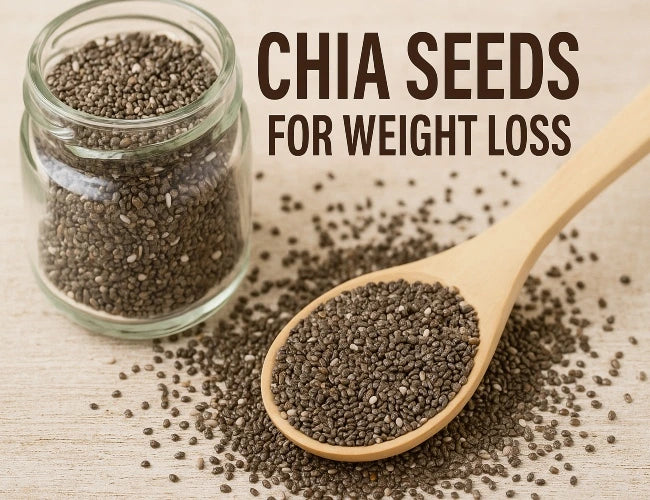Almonds are one of the most cherished nuts around the world due to their high nutritive value and health benefits. These nuts are packed with healthy fats, antioxidants, vitamins, and minerals that promote overall heartiness. While most people know that almonds are good for health, numerous may wonder - what are the specific health benefits of consuming almonds?
Whether you enjoy almonds as a beating on your ice cream or have almond milk in your smoothie, almonds add a satisfying crunch and flavour to foods while also promoting a healthy diet. The small size of these nuts belies the huge impact they can have on health and heartiness. It's because almond seeds contain antioxidants, proteins, healthy fats, and minerals that give a variety of benefits. Let’s have a look at these benefits.
The Nutritional Value of Almonds
As compared to other nuts, these almonds have the loftiest quantities of protein, fibre, magnesium, monounsaturated & polyunsaturated fats, iron, calcium, & folate. Almonds are also rich in Vitamin E, riboflavin, niacin and phytochemicals similar to flavonoids. In 100 grams of raw almonds, you can find:-
|
Nutrients |
Amount (100 g) |
|
Magnesium |
258 mg |
|
Phosphorus |
503 mg |
|
Biotin |
57 mcg |
|
Calcium |
254 mg |
|
Protein |
21.4 g |
|
Calories |
600 |
|
Fibre |
10.8 G |
|
Fat |
51.1 G |
|
Copper |
0.91 mg |
Health Benefits of Eating Almonds

The benefits of eating almonds almost every day are not hidden. The nutritional value of almonds Here are 5 health benefits of almonds nuts that one should be aware of:-
Lowers Cholesterol Levels
- Consuming almonds regularly can help reduce high cholesterol situations.
- Studies indicate eating almonds raises vitamin E amounts in red blood cells (RBCs), giving antioxidant goods to help cholesterol buildup.
- Eating a chunk of almonds daily generates further vitamin E to lower cholesterol threats.
- Vitamin E, monounsaturated fats, and phytosterols in almonds, all help lower cholesterol.
Adding almonds to your diurnal diet can help in dwindling LDL cholesterol and perfecting overall cholesterol situations.
Controls Blood Sugar
- The nutrients in almonds, especially magnesium( Mg), can help in regulating blood sugar situations.
- The magnesium in almonds helps regulate and stabilise blood sugar situations.
- For individualities with diabetes, almonds can ameliorate insulin resistance due to their magnesium content.
- The fibre and healthy fats in almonds also help manage blood sugar harpoons after refections.
Almonds are a smart snack choice for those seeking to control their blood sugar situations.
Aids in Weight Loss Management
- Almonds may offer assistance with weight administration due to their stellar supplement profile.
- With bulk protein, fibre and carbs, almonds make strides in satiety to diminish calorie intake.
- This supplement profile underpins craving control and solid weight management.
- The fibre keeps you feeling full longer, whereas the protein and fat offer assistance to control starvation hormones.
Studies display that almond eaters tend to have lower BMIs and more advantageous body weights.
Packed with Nutrients
Almonds give an amazing cluster of vitamins, minerals, and nutrients. 28 grams of almonds contains:
|
Nutrients |
Amount per 28g (1 oz) |
|
Protein |
6g |
|
Fibre |
3.5g |
|
Fat |
14g |
|
Vitamin E |
37% DV |
|
Manganese |
32% DV |
|
Magnesium |
20% DV |
Almonds contain copper, vitamin B2, phosphorus, and more. They give tall sums of biotin, zinc, press, folate, and antioxidants. The stellar dietary cosmetics of almonds make them an incredible expansion to a nutrient-rich count of calories.
Helps Control Blood Pressure
- Almonds have nutrients like magnesium that help in controlling blood pressure.
- Low magnesium situations may lead to high blood pressure and affiliated health issues.
- Adding almonds to your diet can help if you have magnesium insufficiency. The plant-based protein and fibre in almonds also promote heart-healthy blood pressure situations.
Also read - 12 Health Benefits of Almonds and its Nutrition Value
How can you incorporate almonds into your regular diet?
Adding almonds to your diurnal diet can be both succulent and healthy. Then are some simple ways to add almonds to your diurnal diet
- Almonds as Snack - Enjoy a sprinkle of raw or roasted almonds as a quick, nutritional snack.
- Almond Butter - Spread almond butter on toast, mix it into oatmeal, or use it as a dip for fruits and vegetables.
- Smoothies - Blend almonds or almond adulation into your smoothie for added protein and texture.
- Salads - Sprinkle diced almonds on salads for a boost.
- Baking - Add sliced or diced almonds to muffins, galettes, or granola for redundant crunch and nutrition.
- Almond Milk - Use almond milk as a dairy-free volition in your coffee, tea, or fashions that call for milk.
- Breakfast Foods - Mix almonds into your yogurt, cereal, or oatmeal for added protein and fibre.
- Stir-Fries - Toss almonds into stir-fries or grain coliseums for extra texture and flavour.
In conclusion, almonds are a powerhouse of nutrition with benefits that range from improving heart health to aiding weight management. Their rich composition of healthy fats, protein, fibre, vitamins, and minerals makes them an essential part of a balanced diet. Regular almond consumption can help lower cholesterol, regulate blood sugar, and manage blood pressure. These versatile nuts can be added to meals in countless ways, enhancing both taste and health. By including almonds in your daily diet, you can enjoy their flavourful crunch while reaping their numerous health benefits—a small but impactful change for a healthier lifestyle.
FAQs on Eating Almonds
1. What happens if I consume almonds every day?
Eating almonds daily boosts heart health, regulates blood sugar, reduces cholesterol, aids weight management, and provides essential nutrients.
2. Are soaked almonds good for health?
Soaked almonds improve digestion, and nutrient absorption, and reduce anti-nutritional elements, offering enhanced benefits compared to raw almonds.
3. Who should not eat almonds?
People with nut allergies or those advised by doctors to avoid high-fat foods should refrain from eating almonds.
4. How many almonds should I eat daily?
Consuming 15-20 almonds per day is ideal for balancing health benefits without exceeding calorie and fat intake.
5. Can I eat almonds while pregnant or breastfeeding?
Almonds are safe during pregnancy or breastfeeding, offering nutrients like folate, magnesium, and healthy fats for both mother and baby.




Leave a comment
All comments are moderated before being published.
This site is protected by hCaptcha and the hCaptcha Privacy Policy and Terms of Service apply.